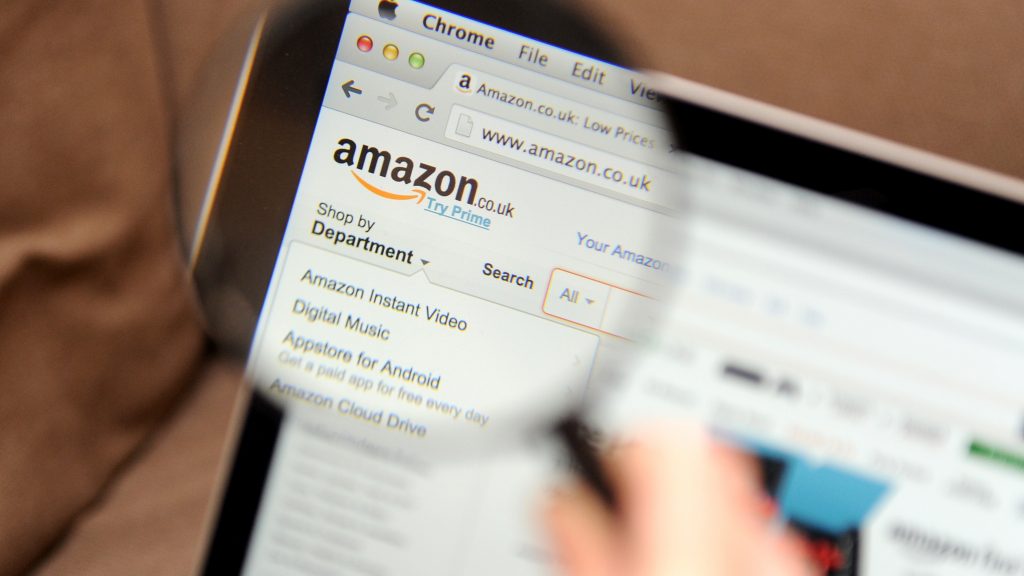Which? exposes ‘fake reviews industry’ on Amazon Marketplace

Amazon Marketplace is facing an uphill struggle to stem the tide of fake reviews according to a Which? investigation which claims that hundreds of thousands of misleading fake reviews are being bought and sold on the platform for as little as £5 each.
The consumer watchdog’s investigation found businesses dedicated to the sale of Amazon reviews in bulk and incentivising positive reviews through the offer of free products or other incentives. Many had advice on how to avoid detection from the online marketplace. Some claimed they could get sellers the coveted Amazon’s Choice endorsement within a fortnight.
Amazon Marketplace is the world’s biggest online marketplace and a lucrative prospect for third-party sellers. It sold an estimated £215 billion worth of products worldwide in 2020.
All of the 10 sites offering review manipulation services that Which? investigated were found easily on the first page of Google search results for terms like ‘make money from reviews’ or ‘get free products’. Some were even sponsored adverts, meaning the business has paid Google to appear at the top of the results and that the ad content has been reviewed by the search engine, claims Which?
Which?’s investigation points to the sheer scale of the fake reviews industry – with 702,000 product reviewers across just five of the businesses it looked at. They appear to be thriving despite fake reviews, including incentivisation, being strictly against Amazon‘s terms of use.
For sellers looking to buy reviews, there was an array of different packages they could purchase to boost their products on Amazon – and Which? saw several examples of products where these tactics appeared to have paid off.
Product reviewers who sign up get access to hundreds of products, from children’s toys to exercise equipment, and are offered small payments alongside a free or discounted product – ranging from a few pounds up to more than £10. They even have the option of taking part in loyalty schemes and earning themselves the pick of premium products.
One group, German-based AMZTigers, sells reviews individually for around £13 or in bulk packages, starting at £620 for 50 reviews and going up to £8,000 for 1,000 reviews. It claims to have a large army of reviewers – 62,000 globally and 20,000 UK-based.
Pretending to be a seller, Which? said it spoke to an account manager for AMZTigers which recommended aiming for reviews on a certain percentage of sales, warning that any more than that could be flagged as suspicious by Amazon. They also told Which? that the company could help sellers get an Amazon’s Choice endorsement in less than two weeks by using its pool of buyers to generate sales on certain search terms – such as ‘Bluetooth headphones’ – on Amazon.
Another site, AMZDiscover, allows sellers to search the URL of an existing Amazon listing, and then download contact details for the reviewers of the product so they can contact them, unsolicited, directly. The company claims some clients have downloaded 40,000 email addresses for potential reviewers.
All the sites Which? signed up to gave advice for how to write reviews so as not to arouse Amazon’s suspicion, and in many cases had criteria for reviewers to meet to qualify for rewards. These included leaving reviews that were at least two sentences long, posting an accompanying image or video and not posting reviews until at least four days after receiving a product. Some sites also had no return policies – as returned products are monitored by Amazon and high return rates can affect the chance of an Amazon’s Choice endorsement.
Says Natalie Hitchins, Head of Home Products and Services at Which?:
“More people are shopping online than ever before due to the coronavirus crisis – yet our latest research shows that Amazon is facing an uphill struggle against a relentless and widespread fake reviews industry geared towards misleading consumers.
“The regulator must crack down on bad actors and hold sites to account if they fail to keep their users safe. If it is unable to do so, the government must urgently strengthen online consumer protections.
“Amazon, and other online platforms, must do more to proactively prevent fake reviews infiltrating their sites so that consumers can trust the integrity of their reviews.”
Replies an Amazon spokesperson:
“We remove fake reviews and take action against anyone involved in abuse. We have won dozens of injunctions against providers of fake reviews across Europe and we won’t shy away from taking legal action.
“However, Amazon and other online retailers cannot do this alone. Customers need to be able to trust the reviews they see online and the systematic manipulation of reviews needs consistent enforcement and global coordination with stronger enforcement powers given to regulators against bad actors.
“We continue to work to protect the authenticity of customer reviews. We advise customers who doubt the credibility of a review on a product to click the ‘report abuse’ link available below each review. We will then investigate and take necessary measures.”
For more information see https://www.which.co.uk/news/
Discover more from Tech Digest
Subscribe to get the latest posts sent to your email.


One thought on “Which? exposes ‘fake reviews industry’ on Amazon Marketplace”
Comments are closed.